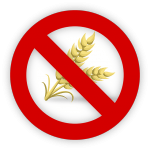
Gluten is a protein composite that is found in certain grains, including wheat, barley, and rye. It is formed when two proteins, gliadin and glutenin, combine and create a network of strands that provide elasticity and structure to dough. This enables dough to rise and hold its shape during baking, making gluten a crucial component of many baked goods.
In addition to wheat, barley, and rye, gluten can also be found in other grains, such as spelt, kamut, einkorn and triticale. It is commonly used in the production of bread, pasta, and other baked goods, as well as in processed foods like sauces, dressings, and soups. It is also used as a binding agent in some non-food products, such as cosmetics and medications.
Celiac Disease
While gluten is an important ingredient in many foods, it can also cause health problems for some people. The most well-known condition associated with gluten is celiac disease, which is an autoimmune disorder that affects the small intestine. In people with celiac disease, gluten triggers an immune response that damages the lining of the small intestine, leading to malabsorption of nutrients and a range of symptoms, including abdominal pain, bloating, diarrhea, and fatigue. The only treatment for celiac disease is a strict gluten-free diet, which involves avoiding all foods and products that contain the gluten. The condition and its management is well defined and described on the UK’s NHS web-site.
There are also other conditions that can cause a sensitivity or intolerance to gluten, such as non-celiac gluten sensitivity, wheat allergy, and gluten ataxia. These conditions can cause symptoms similar to those of celiac disease, such as abdominal pain, bloating, diarrhea, and fatigue, but without the same level of intestinal damage. However, the treatment for these conditions is also a gluten-free diet.
Gluten-Free Foods
For people who need to follow a gluten-free diet, there are now many products free of this protein available in stores and online, including bread, pasta, pizza crust, and baked goods. These products are made using alternative flours and ingredients that are free from gluten, such as rice flour, corn flour, and potato starch. However, it is important to note that many gluten-free products are also high in sugar and fat, and may not be as nutritious as their gluten-containing counterparts.
In recent years, there has been a growing trend of people choosing to avoid gluten for non-medical reasons, such as for weight loss or general health. However, there is little scientific evidence to support these claims, and some experts warn that a gluten-free diet can actually be less healthy if it is not properly balanced. For example, many gluten-free products are low in fiber, vitamins, and minerals, which can increase the risk of nutrient deficiencies.
There are also some potential risks associated with a gluten-free diet. For example, people who follow this strict diet may be at risk of developing a deficiency in iron, calcium, and B vitamins, as these nutrients are commonly found in gluten-containing foods. In addition, a gluten-free diet can be expensive, as these types of products are often more costly than their gluten-containing counterparts.
If you are considering a gluten-free diet for any reason, it is important to speak with your healthcare provider or a registered dietitian to ensure that your diet is properly balanced and meets your nutritional needs. They can help you identify sources of gluten in your diet and provide guidance on how to make healthy and nutritious food choices. They can also help you avoid nutrient deficiencies and other potential health risks associated with a gluten-free diet.
So, gluten is a protein composite that is found in certain grains and is commonly used in the production of baked goods and processed foods. While this protein is an important ingredient in many foods, it can also cause health problems for some people, those with celiac disease and gluten sensitivity. For these individuals, a strict gluten-free diet must be observed otherwise there are serious health issues.


Leave a Reply